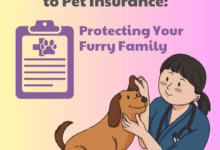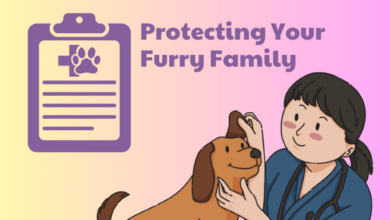![]()
In today’s pet-centric world, ensuring the well-being of our furry companions is paramount. However, unexpected veterinary expenses can put a strain on our wallets and leave us grappling with difficult choices. Pet health insurance in North Carolina offers a solution to this financial burden, providing peace of mind and ensuring that our beloved pets receive the best possible care when they need it most.
Types of Coverage Offered by Pet Health Insurance in North Carolina
1. Accident and Illness Coverage
This coverage reimburses pet owners for veterinary expenses related to unforeseen accidents and illnesses, such as surgery, hospitalization, and medication. It typically covers a wide range of medical conditions, including broken bones, infections, and cancer.
2. Wellness Coverage
Wellness coverage focuses on preventive care, such as routine checkups, vaccinations, and spaying or neutering. This coverage can help pet owners reduce the cost of maintaining their pet’s health and prevent future medical issues.
3. Dental Coverage
Dental coverage provides reimbursement for veterinary expenses related to dental care, including cleanings, extractions, and treatments for periodontal disease. Dental care is essential for maintaining pet oral health and preventing painful dental problems.
4. Emergency Coverage
Emergency coverage provides immediate financial assistance for unexpected medical expenses related to life-threatening emergencies, such as poisoning, bloat, or severe accidents. This coverage can help pet owners avoid large out-of-pocket expenses in stressful situations.
5. Breed-Specific Coverage
Some pet health insurance policies offer breed-specific coverage that addresses common health conditions prevalent in certain breeds. This coverage can provide targeted protection for pets with specific genetic predispositions.
6. Alternative Therapy Coverage
Alternative therapy coverage reimburses pet owners for expenses related to alternative treatments, such as acupuncture, chiropractic care, and hydrotherapy. These treatments can provide additional support for pets with chronic conditions or injuries.
7. Behavioral Coverage
Behavioral coverage provides reimbursement for veterinary expenses related to behavioral issues, such as anxiety, aggression, and destructiveness. This coverage can help pet owners manage behavioral problems and improve their pet’s overall well-being.
8. Lifetime Coverage
Lifetime coverage provides pet owners with ongoing coverage for their pet throughout its lifetime, regardless of age or pre-existing conditions. This coverage ensures that pets have access to necessary medical care throughout their lives.
9. Multiple Pet Coverage
Multiple pet coverage allows pet owners to insure multiple pets under the same policy. This coverage can provide convenience and savings for pet owners with several animals.
10. Deductible and Reimbursement Options
Pet health insurance policies offer a range of deductible and reimbursement options to suit individual needs and budgets. Deductibles represent the amount policyholders pay out-of-pocket before coverage takes effect, while reimbursement percentages determine the percentage of expenses covered by the policy.
Factors to Consider When Choosing Pet Health Insurance in North Carolina
1. Coverage: Review the coverage details carefully to ensure the plan meets your pet’s needs. Look for plans that cover accidents, illnesses, and emergency expenses.
2. Deductible: Higher deductibles lower your monthly premiums, but you’ll pay more out of pocket before coverage kicks in. Choose a deductible you can afford while providing adequate coverage.
3. Reimbursement Percentage: Plans typically reimburse you for a percentage of eligible expenses (e.g., 80%). Higher reimbursement rates offer better coverage but increase premiums.
4. Annual Coverage Limit: Some plans have annual coverage limits, which can limit the amount you can claim in a year. Consider your pet’s age and potential health risks when choosing a limit.
5. Exclusions and Limitations: Be aware of any exclusions or limitations on coverage. Certain conditions, treatments, or breeds may be excluded or have restricted coverage.
6. Waiting Period: Plans often have waiting periods before coverage begins for certain conditions. This can impact coverage for pre-existing conditions or sudden emergencies.
7. Customer Service: Look for companies with responsive and knowledgeable customer service representatives who can assist you with claims and any questions you may have.
8. Network of Veterinarians: Some plans offer networks of veterinarians who provide discounted services. Check if your preferred veterinarian is in the network and if the plan covers out-of-network expenses.
9. Breed-Specific Coverage: Certain breeds may have higher health risks. Consider plans that offer tailored coverage for specific breeds to ensure your pet is adequately protected.
10. Your Pet’s Age and Health: Younger and healthier pets may have lower premiums, while older or ill pets may require more comprehensive coverage. Adjust your coverage based on your pet’s individual circumstances.
What to Look for in a Pet Health Insurance Policy in North Carolina
When comparing pet health insurance policies in North Carolina, consider the following key factors:
Coverage
Ensure the policy covers the essential medical expenses you may need, such as:
* Accidents
* Illnesses
* Emergency care
* Routine care (optional)
Compare deductibles, co-pays, and annual coverage limits to find a balance that suits your budget and coverage needs.
Providers
Choose a policy that allows you to visit any licensed veterinarian or veterinary specialist in North Carolina. Check if the insurance company has a network of preferred providers to potentially save on costs.
Customer Service
Look for a company with responsive customer service available through phone, email, or live chat. Read reviews from other policyholders to gauge their experiences with claims processing and overall support.
Reputation
Research the insurance company’s reputation in North Carolina. Check for any complaints or legal actions against them. Consider independent ratings from organizations like the Better Business Bureau (BBB) and the National Association of Insurance Commissioners (NAIC).
Cost
Compare premiums and deductibles from multiple insurers to find a policy that is affordable within your budget. Keep in mind that lower premiums may mean higher deductibles or lower coverage limits.
Thanks for Reading!
Hey there, pet owners! Thanks for taking the time to check out our article on pet health insurance in North Carolina. We hope you found it helpful and informative. We’re always here to help with your pet-related questions, so don’t hesitate to reach out if you need anything. And don’t forget to stop by again soon for more pet tips and tricks!
Checkout These Recommendations:
- Pet Health Insurance: A Comprehensive Guide to… In the realm of pet ownership, ensuring the well-being of our furry companions is paramount. With the rising costs of veterinary care, pet health care plans have emerged as a…
- Unlocking Peace of Mind: Exploring Pet Health Care Insurance In today's world, it's not uncommon for pets to be treated like family members, and with that comes a desire to provide them with the best possible care. Pet health…
- Healthy Pet Food: The Key to Longer, Healthier Lives In the realm of pet care, the nutritional well-being of our furry companions holds paramount importance. As responsible pet owners, we strive to provide the highest quality food to ensure…
- MetLife Pet Health Insurance: Comprehensive Coverage… Looking for peace of mind when it comes to your furry friend's healthcare? MetLife Pet Health Insurance has got you covered! With a range of affordable and customizable plans, you…
- The Essential Guide to Pet Health Care: Ensuring… In the tapestry of our lives, our furry companions intertwine their threads, weaving cherished bonds that enrich our existence. As responsible pet owners, we recognize the paramount importance of ensuring…
- Protect Your Furry Friend: Pet Health Insurance Unveiled In today's world, where our beloved pets are considered family members, it's essential to ensure their well-being, both physically and financially. Pet health insurance has emerged as a valuable tool…
- Comprehensive Cat Care: Exploring Pet Health… In the loving homes of cat owners, these cherished companions bring endless joy and affection. However, as responsible pet owners, ensuring their well-being goes beyond cuddles and playtime. Just like…
- Full Coverage Pet Health Insurance: The Ultimate… As a loving pet owner, you want the best for your furry friend, and that includes ensuring their health and well-being. Pet health insurance can help you provide the best…
- Affordable Pet Health Insurance: A Comprehensive… Pet healthcare costs are rising, but that doesn't mean you have to sacrifice your furry friend's well-being. Pet health insurance can help you cover the costs of unexpected vet bills…
- Pet Health Insurance for Dogs: A Comprehensive Guide… As a dog owner, you'd do anything to keep your furry friend happy and healthy. But vet bills can be expensive, especially if your dog develops a serious illness or…
- The Ultimate Guide to Finding the Best Health… In today's pet-centric world, where our furry companions are cherished members of our families, ensuring their well-being is paramount. However, unforeseen medical emergencies can put a significant financial strain on…
- Pet Health Insurance: Essential Protection for Your… If you're a pet lover, you know that your furry friend is more than just an animal—they're part of your family. And just like any other member of your family,…
- The Ultimate Guide to Finding the Best Pet Health… Keeping your beloved canine companion healthy and happy is paramount, and pet health insurance plays a pivotal role in ensuring their well-being. With the staggering costs of veterinary care, choosing…
- Affordable Pet Health Insurance: Protecting Your… Keeping your furry best friend healthy shouldn't break the bank. That's why low-cost pet health insurance is a paw-some option for many pet parents. Unlike expensive plans, low-cost pet health…
- Arizona's Guide to Safeguarding Your Pet's Health… Hey, Arizona pet parents! Are those vet bills giving you paws for thought? Don't let Fido or Whiskers leave you howling at the moon over unexpected medical expenses. Pet health…
- Essential Tips for Maintaining Your Pet's Optimal… In today's fast-paced world, our furry companions deserve the best possible care to ensure their happiness and well-being. As pet owners, we are responsible for their health and longevity, making…
- Protect Your Furry Friend: A Guide to Pet Dog Health… In the tapestry of pet ownership, health insurance emerges as a thread of invaluable security for our beloved canine companions. As we navigate the complexities of modern veterinary care, the…
- Can You Get Health Insurance for Pets? In the realm of pet ownership, where our furry companions hold a special place in our hearts, the question of insurance inevitably arises. Just as humans seek medical coverage for…
- Pet Peace of Mind: Purina Care Pet Health Insurance… Are you a devoted pet parent seeking to provide the best possible care for your furry companion? Purina Care Pet Health Insurance can be your trusted partner in ensuring your…
- Pet Health Insurance for Your Furry Friend: A… In the realm of pet ownership, safeguarding the wellbeing of our furry companions is paramount. For dog owners, one crucial aspect of this responsibility is ensuring that their beloved pooches…
- Top-Rated Pet Health Insurance: Protecting Your… Safeguarding the well-being of our furry companions is paramount. In today's world, pet health insurance has emerged as an indispensable tool, providing peace of mind and financial protection against the…
- Protect Your Furry Friend: A Comprehensive Guide to… In the world of pet ownership, your furry companion's well-being is paramount. As a responsible pet parent, you want to ensure that your beloved pooch or kitty gets the best…
- Pet Health Insurance in New Jersey: A Comprehensive… In a world where our furry companions hold a special place in our hearts, ensuring their well-being is paramount. With advances in veterinary medicine, pet health insurance has emerged as…
- Figo Pet Insurance: The Comprehensive Guide to Pet… In the realm of pet ownership, ensuring the well-being of our beloved companions is paramount. Amidst the plethora of pet health insurance providers, Figo stands out as a name synonymous…
- Affordable Pet Health Insurance: Protect Your Furry… In today's fast-paced world, ensuring the well-being of our beloved furry companions is more crucial than ever. While we lavish our pets with love and affection, the financial burden associated…
- Is Pet Health Insurance Worth It for Your Dog? In today's modern world, our beloved canine companions deserve the best possible care. With rising veterinary costs, pet health insurance has emerged as an invaluable safety net for dog owners.…
- Protect Your Furry Friend: A Comprehensive Guide to… In today's modern world, our furry companions hold a special place in our hearts and homes. But just like us, pets can face unexpected health issues that can strain our…
- Pet Insurance: Protecting Your Furry Friend's Health… In this rapidly evolving world of pet ownership, where our furry companions are increasingly seen as cherished members of the family, the significance of safeguarding their well-being cannot be overstated.…
- Pet Health Insurance in Massachusetts: Essential… In the pet-loving Bay State, ensuring the well-being of our furry companions is a top priority. Massachusetts is home to a wide range of pet insurance providers, offering customizable plans…
- Best Pet Health Plans to Protect Your Furry Friend In the realm of pet ownership, ensuring the well-being of our furry companions is paramount. With the myriad of pet health care plans available, navigating the options can be daunting.…








